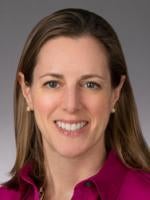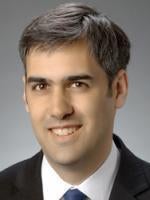CMS issued its Outpatient Prospective Payment System (“OPPS”) Proposed Rule for 2017 (the “Proposed Rule”) on July 6, 2016. The Proposed Rule will be published in the Federal Register on July 14, 2016. One highly-anticipated section of the Proposed Rule is the implementation of legislations known as Section 603 of the Bipartisan Budget Act of 2015 (“BiBA 603”), which imposed “site neutrality” on new off-campus outpatient departments of hospital providers (“OCODPs”). Essentially, in BiBA 603, Congress said that new OCODPs would not be eligible for payment under the Medicare OPPS after January 1, 2017 (but rather would be paid as would freestanding sites, hence the “site neutrality” imposed by the legislation). But many unanswered questions were left by Congress for CMS or the Courts to answer.
CMS has now proposed its own answers to many of those open questions – and the hospital community will not like them. Here is a short summary of the key business issues arising from the Proposed Rule in connection with BiBA 603.
-
Grandfathered (now referred to by CMS as “excepted”) OCODPs will not be able to relocate, even to other units within an existing medical office building.
-
Grandfathered OCODPs will not be able to expand the services they offer beyond the same “families of clinical services” that the specific OCODP offered prior to November 2, 2015 and have them paid under OPPS. OCODPs will be frozen in time as they were in 2015.
-
340B drug pricing appears to be intact in non-exempt OCODPs. CMS made a point to state that the non-exempt OCODPs are still provider-based to the hospital and was careful to say that this was a payment rule change only. While CMS was silent on the specific application to 340B Drug Pricing Program eligibility, these clarifications should allow (both exempt and non-exempt) OCODPs for 340B participating hospitals to meet current 340B standards.
-
Hospitals will find that some services (“exempted services”) within a grandfathered OCODP will continue to be billable under OPPS, on a UB-04, while other services (“non-exempted services”) in the same facility will need to be billed under an alternate method, and that method will be the Medicare Physician Fee Schedule, as a free-standing entity, for 2017 at least.
-
Dedicated Emergency Departments will be entirely exempt and all services (even non-emergency services) will be exempt from site-neutrality payment provisions.
-
In 2017 (and maybe for a longer period of time), services (1) furnished in a non-grandfathered/non-excepted facility or (2) services that are non-exempted will need to be billed by the physician or non-physician practitioner (at the non-facility rate), and the hospital will need to figure out whether and how to collect its portion of the fee from the physicians. Alternatively, under reassignment, the hospital would bill on the CMS 1500 claim form for all services and reimburse the physician or non-physician practitioner for their services.
-
Assuming the Proposed Rule goes into effect as proposed, this will result in a flurry of contracting with myriad independent medical groups during the 4th quarter of the year if hospitals are going to be prepared the physicians to do the billing as of January 1, 2017.
-
A hospital may not sell an excepted OCODP (they are not medallions), but if provider is sold or merges in its entirety, an OCODP’s grandfathered status “generally transfers” to new ownership as long as no “material change” of PB status and the new owner accepts the prior hospital’s provider agreement and all its liabilities.
-
Billing for non-exempt services will be confusing, including the potential impact of the hospital deductible to services that will in the future be billed under the MPFS.
Next Steps
While many hospitals and trade associations already offered specific comments – many directly opposed to the implementation proposed by CMS, we note that formal comments are being accepted on this proposal (CMS-1656-P) by September 6, 2016. We urge interested parties to assess the impact of these proposals on their operations and offer comments.
The U.S. House of Representatives recently passed legislation that would exclude cancer hospitals in off-campus outpatient departments from the new payment methodology and extend the date by which mid-build outpatient departments had to attest to a binding written agreement with an outside party for construction. However, it is unclear whether the U.S. Senate will take up the measure or propose alternate legislation. In May, dozens of federal legislators sent a bipartisan letter to CMS available here urging the agency to be flexible in its interpretation of the law in order to ensure access to quality care for Medicare patients. It is anticipated that a similar effort will occur prior to the final rule being issued. Congress is scheduled to recess later this week until September.
Cheryl Storey is co-author of this article.






 />i
/>i

